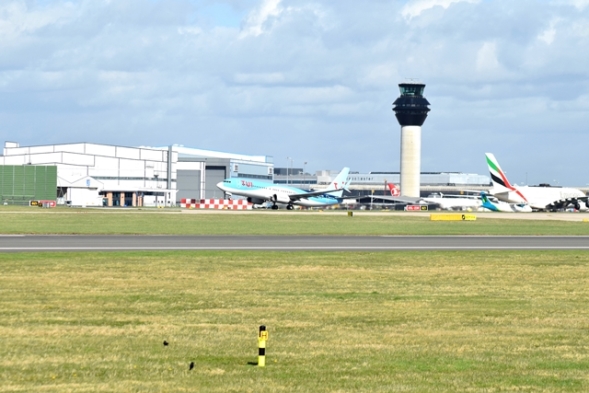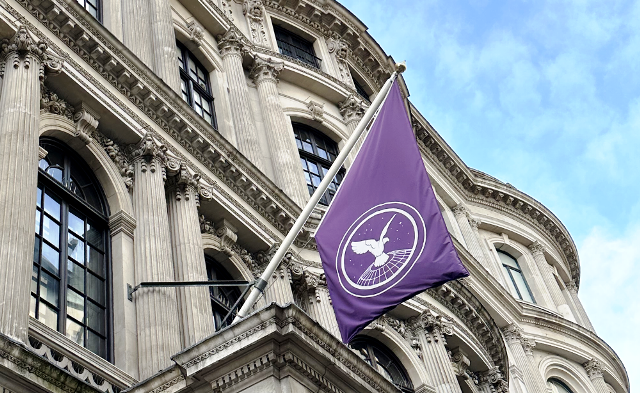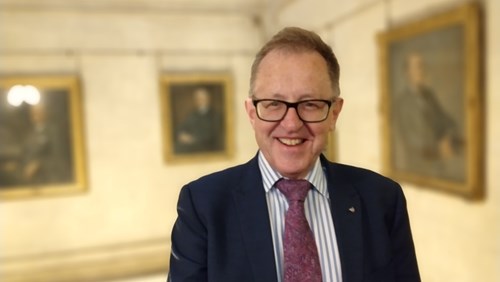Cranfield and ATAG launch GSAE

Image copyright Shutterstock
The need for urgent action on sustainable aviation is clear. For industry to meet ICAO and Paris Agreement targets, both the delivery and scaling up of change must happen within this decade.
This urgency was the motivation for the launch of the Global Sustainable Aviation Exchange (GSAE) organised by Cranfield in partnership with the Air Transport Action Group (ATAG).
The launch took place earlier this month (7th December 2023) hosted at Cranfield’s studio in the UK and co-hosted by Khalifa University close to COP 28 in the UAE and supported by The University of Waterloo.
Bringing together leading universities from around the world, and major stakeholders from across aviation, GSAE addressed key challenges facing the industry in meeting its 2050 targets on climate change and biodiversity, with a focus on delivery and scale-up this decade (by 2030). Participants included Airbus, Boeing, Rolls-Royce, CSIRO and Cambridge, MIT, Hasselt & Griffiths universities.
At the heart of new Exchange thinking is the scale and complexity of the job ahead. Aviation is a complex system of systems, made up of interdependent elements and stakeholders around the world — meaning it has to move forward as a joined-up single entity. The sector cannot afford to leave sections behind or there will be lost time and a need to stop and go back.
With this in mind, the event was based around 10 challenge areas, covering diverse aspects of what must happen to deliver on Aviation’s 2050 targets. These ranged from technology and fuels, to regulations, skills and finances. The aim was to better understand what practical measure can be implemented immediately and what work needs to happen to identify and deliver longer-term measures.
Each of these ten challenges will be used to build networks of ongoing collaboration activity, each targeting a challenge within different global regions. These networks aim to deliver operational solutions before 2030.
1. Circular economy compliance and scope
Over the next 20 years, 20,000 aircraft will leave service and be dismantled: meaning a channel of high-value materials — titanium, aluminium and a range of other metals and composites. The 60 industry members of the International Aerospace Environmental Group (IAEG) are working on developing standards, specifications and tools that can be used as a basis for building circular economy practices of re-use, remanufacturing and recycling.
2. Sustainable Aviation Fuels scale-up
Universal adoption of SAFs was agreed to be the essential pillar to meeting the 2050 emissions reduction targets — meaning the need for a fast-track to building a SAF production infrastructure. 4,000 SAF facilities are estimated to be needed to produce 330 million tonnes of SAF annually by 2050 (requiring $5 trillion investment). Rapid development is possible with concerted action by industry. US, EU and UK government policies are already pushing for SAF development; financial institutions are alert to the vast potential for investment returns. Work is needed on ensuring a global framework, with more support for developing economies around policy, feedstock supplies and skills, to minimise risks for investors (there are currently no funded plans for SAF production facilities in Africa, for example).
3. Government urgency and legislation (national & international)
Closely related to the challenge of SAF is the role of governments in setting out strategies and policies that allow for, and stimulate the growth of, sustainable aviation technologies generally (including the use of SAF and hydrogen fuels). Industry needs governments to have the ambition and vision to get behind innovation and provide incentives; but governments need evidence around viability and benefits for economies, job creation and revenue generation. Collaboration is needed to speed up this cycle of evidence/funding and clear policy commitments.
4. Adaption to climate change impacts
Climate change is having a serious impact on aviation operations in terms of safety and continuity: extreme weather events — the storms and flooding, the melting runways — are leading to disrupted flights, airport closures as well as problems for transport in and out of airports, and challenges for staff, in handling customer relations, dealing with different kinds of maintenance etc.
5. Integrity of offsets
Work is going on to create more ‘buyer’ confidence. That means developing more of a governance structure for offsetting and attention to the concrete details of what works: avoiding projects that are market-driven and focus on less effective models for sequestering carbon, such as simply planting more trees; looking instead at below ground carbon sequestration, in soils and roots, as well as the value of grasslands and wetlands; and projects that go beyond carbon, to water, biodiversity and the issue of levels of ‘albedo’ (reflecting heat away from the Earth).
6. Delivering the short-term opportunities
Relatively simple changes can deliver immediate gains around sustainability. The use of data analytics and AI software is being used — and could be used more widely — to optimise flight routes, arrival times, infrastructure and hangar use and for predictive maintenance. Research between MIT and Delta Airlines has demonstrated the potential for real-time tracking of areas with contrail risk to inform re-routing. Trials and simulations have shown that 70-90% of all heat-trapping contrails could be avoided through flight and altitude adjustments.
7. Biodiversity loss
More airports are adapting themselves to become part of green urban infrastructure, and more work is needed to look at local land use and buildings, making sure biodiversity is included in thinking around ecosystem services. Remote sensing is increasingly being used to monitor and measure changes in ecosystems internationally. One major issue will be around land use for SAF feedstock production. For example, the recent SAF flight by Virgin used fuel made from 100% new crops — a model that would have serious implications for land use globally, food security and biodiversity.
8. Achieving Net Zero 2050 while keeping global warming below 1.5˚C
Measurement — and strict, authentic measurement — is critical. Research is demonstrating the importance of not keeping solely to the Paris Agreement focus on carbon emissions and thinking in more detail about what ‘net zero’ means, or should mean. Aviation needs a multi-gas strategy in its measurement and find a useful means of aggregating the impact of other gases by comparison with CO2 (initial work suggests this should include CO2, water vapour and NOx, but not contrails or SO2) to ensure a reliable set of metrics to work from.
9. Skills shortage & Workforce Sustainability
A new civil aviation professional will be needed every four minutes according to estimates: including 300,000 more pilots, 300,000 more maintenance engineers, 600,000 more cabin crew over the next ten years. In practice this will happen by: broadening the talent pool by appealing to under-represented groups; and opening up more opportunities for work-integrated learning, combining studies with workplace learning; and more collaboration between industry and universities over joint schemes.
10. Finance
Sustainable aviation stalls without investment, without belief and confidence from capital markets. The Price of Net Zero report by SEO Amsterdam Economics (SEO) and Royal Netherlands Aerospace Centre (NLR) points to the need for an additional 820 billion Euros investment over 32 years to deliver a net zero industry.
Streams of innovation and evidence of viability of sustainable projects across the industry is needed to generate a positive cycle of government and investor commitments. At the same time, new business and investment models are emerging.
Airlines are being encouraged to think of selling sustainability as a ‘product’. Corporate and freight customers, for instance, will be willing to pay higher prices for services if their use of sustainable aviation can be made part of their own organisational carbon reduction and net zero strategies.
Flows of private capital can be increased by de-risking investments through longer-term agreements, over 15 to 20 years rather than five, reducing interest rates and allowing more time for proof of demand and value of hydrogen and hybrid electric technologies.

















